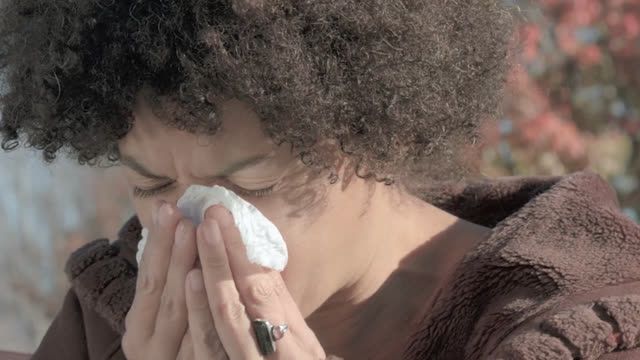About These Medicines
Make sure you know about each of the medicines you take. This includes why you take it, how to take it, what you can expect while you're taking it, and any warnings about the medicine.
The information provided here is general. So be sure to read the information that came with your medicine. If you have any questions or concerns, talk to your pharmacist or doctor.
What are some examples?
There are many types of over-the-counter allergy medicines. They may come as pills, liquids, or eyedrops or as nasal gels, drops, or sprays. Read and follow all instructions on the label.
- Corticosteroid nasal sprays. These help reduce inflammation in the nose. They clear up a stuffy nose. They also help relieve red, itchy, and watery eyes. Examples include fluticasone and triamcinolone.
- Antihistamines. These help relieve sneezing, a runny nose, itching, and watery eyes. Examples include cetirizine, diphenhydramine, and loratadine.
- Decongestants. These help relieve a stuffy nose and pressure in the ears. Examples include oxymetazoline, phenylephrine, and pseudoephedrine.
- Antihistamine-decongestant combinations. These work on most of the symptoms of allergies.
Decongestants and some antihistamines may not be safe for young children, older adults, or people with certain health problems. The U.S. Food and Drug Administration (FDA) recommends not using over-the-counter cough and cold medicines in children younger than age 2. The FDA also recommends avoiding these medicines for children younger than age 4.footnote 1 Before you use them, check the label. If you do use these medicines, always follow the directions about how much to use based on age and, in some cases, weight.
What about side effects?
Side effects depend on the type of medicine.
- Corticosteroid sprays can dry or irritate the nose. They can cause coughing, sneezing, diarrhea, or nausea.
- Antihistamines such as cetirizine (Zyrtec) and loratadine (Claritin) cause few side effects. Antihistamines like diphenhydramine (Benadryl) and chlorpheniramine (Chlor-Trimeton) may have more side effects. For example, they may make you tired or cause dry eyes or a dry mouth. They can also cause heart, bowel, or bladder problems.
- Decongestants can cause a dry or irritated nose, sneezing, or a stinging or burning feeling in the nose. They may also cause a rapid heartbeat, blurred vision, or dizziness. Side effects can also include sleep problems or feeling anxious or over-excited.
General information about side effects
All medicines can cause side effects. Many people don't have side effects. And minor side effects sometimes go away after a while.
But sometimes side effects can be a problem or can be serious.
If you're having problems with side effects, talk to your doctor. Your doctor may be able to lower your dose or change to a different medicine.
Always be sure you get specific information on the medicine you're taking. For a full list of side effects, check the information that came with the medicine you're using. If you have questions, talk to your pharmacist or doctor.
What are some cautions about allergy medicines?
Decongestants and some antihistamines may not be safe for young children, older adults, or people who have certain health problems. Before you use them, check the label. If you do use these medicines, always follow the directions about how much to use based on age and, in some cases, weight.
General cautions for all medicines
- Allergic reactions.
- All medicines can cause a reaction. This can sometimes be an emergency. Before you take any new medicine, tell the doctor or pharmacist about any past allergic reactions you've had.
- Drug interactions.
- Sometimes one medicine may keep another medicine from working well. Or you may get a side effect you didn't expect. Medicines may also interact with certain foods or drinks, like grapefruit juice and alcohol. Some interactions can be dangerous.
- Harm during pregnancy or breastfeeding.
- If you are pregnant, trying to get pregnant, or breastfeeding, ask your doctor or pharmacist if all the medicines you take are safe.
- Other health problems.
- Before taking a medicine, be sure your doctor or pharmacist knows about all your health problems. The medicine for one health problem may affect another health problem.
Always tell your doctor or pharmacist about all the medicines you take. This includes prescription and over-the-counter medicines, vitamins, herbs, and supplements. That information will help prevent serious problems.
Always be sure you get specific information on the medicine you're taking. For a full list of warnings, check the information that came with the medicine you're using. If you have questions, talk to your pharmacist or doctor.
Related Information
References
Citations
Credits
Current as of: September 25, 2023
Author: Healthwise Staff
Clinical Review Board
All Healthwise education is reviewed by a team that includes physicians, nurses, advanced practitioners, registered dieticians, and other healthcare professionals.
Current as of: September 25, 2023
Author: Healthwise Staff
Clinical Review Board
All Healthwise education is reviewed by a team that includes physicians, nurses, advanced practitioners, registered dieticians, and other healthcare professionals.


